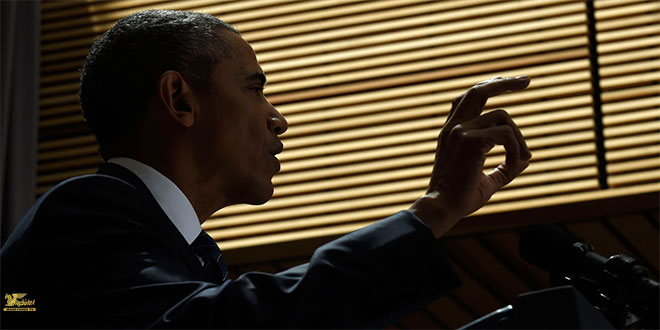Rep. Jan Schakowsky, Rep. Lloyd Doggett and Rep. David Price

Writing exclusively for Haaretz, three members of Congress explain why the nuclear deal with Iran is good for America – and Israel.
The relationship between the United States and Israel is built on a foundation of common interests and common values, and it has been strengthened over the decades by our resolve in the face of common threats — from Soviet interventionism in the Middle East during the Cold War to the spread of violent extremism today.
There is no question that Americans from across the political spectrum view Iran’s pursuit of a nuclear weapon as a common threat of the highest order. Nor do we doubt that the special relationship between Americans and Israelis will withstand the current debate over the Joint Comprehensive Plan of Action negotiated between the “P5+1” international partners and Iran, as it has withstood previous policy debates.
Yet some leaders in both countries have cynically exploited disagreements over how best to address the Iranian threat, at times for domestic political gain. From Prime Minister Benjamin Netanyahu’s provocative address to Congress in the run-up to the Israeli elections, to the more recent inflammatory rhetoric of Republican U.S.
presidential candidates, a debate that should be sober and mutually respectful has devolved into political hyperbole. This politicization of a critical international security issue risks blocking what we believe is the surest path to preventing Iran from acquiring a nuclear weapon.
As members of Congress who are strong supporters of our country’s special relationship with Israel and who also support the JCPOA, we take this risk very seriously. We understand that not all Israelis — or Americans — will share our point of view. However, the coalition of supporters of the Iran nuclear deal continues to grow. Now there are enough Senators who publicly support the agreement to join House Democrats in sustaining a presidential veto of Congressional disapproval of the agreement. We believe this support is merited, for three essential reasons.
First, there is the substance of the deal itself. As U.S. President Barack Obama has emphasized, the JCPOA is “the strongest non-proliferation agreement ever negotiated.” For the first time ever, the international community will be able to intrusively monitor all of Iran’s declared facilities and access other suspicious sites. The core of the plutonium reactor at Arak will be filled with cement, and thousands of centrifuges, including more advanced models, will be verifiably disconnected and rendered inoperable.
Second, the JCPOA was the best — and perhaps the only — deal that was possible. Of course the agreement isn’t perfect; no multilateral deal of this magnitude and complexity, and especially none involving China and Russia, will meet all of our negotiating objectives. Yet, we believe the international community will remain vigilant in enforcing the JCPOA verification and inspections regime.
However, to claim that a better deal was possible — or would be if the U.S. Congress were to block the JCPOA’s implementation — is at best wishful thinking and at worst willful deceit. No observer to the talks believes U.S. negotiators could have extracted additional concessions on matters of serious disagreement without losing the support of either Iran or our P5+1 partners.
The same goes for the claim that the negotiations should have addressed serious but unrelated issues such as Iran’s support for terrorism and its abysmal human rights record. The United States, Israel and the international community must continue to aggressively confront Iran as a bad actor in the region — and nothing in the JCPOA prevents us from doing so. But it would be counterproductive to insist that every problem we have with Iran must be solved before anything can be solved. Isn’t it preferable to confront these other issues with Iran’s hands tied by an international inspections regime, instead of dealing with a nuclear weaponized Iran?
This relates to our third reason for supporting the JCPOA: the absence of any credible alternative. Were the United States to walk away from the deal now, the international coalition that produced both the JCPOA and the sanctions that made it possible would unravel, undermining our negotiating leverage and leaving the United States and Israel further isolated diplomatically. Iran would be free to resume its nuclear activities without the constraints imposed by the deal, and our intelligence capabilities in the country would be greatly diminished.
Such an outcome could leave war as the only remaining alternative to the pre-JCPOA status quo. Some of the same conservatives who gave their full-throated support to the Iraq War are also lining up in opposition to this agreement. But the JCPOA offers a better path forward: it provides a realistic and verifiable means of blocking every path Iran might take to develop a nuclear weapon, without removing any of our options if Iran cheats on the agreement.
This isn’t just the judgment of three members of the U.S. Congress: it is a view shared by diplomats from all of the P5+1 powers; by experts, academics, and officials in the energy, defense and financial sectors – and, importantly, by prominent representatives of the Israeli military and intelligence community, including senior Israeli officials who consulted directly on the negotiations.
In short, the JCPOA is an agreement befitting our history of resolve in the face of common threats. It gives diplomacy a chance and it is an achievement that deserves broad support in the United States, Israel and across the international community. With sufficient support in both the House and Senate, this agreement is about to become a reality. Now we must ensure that it is vigorously enforced.
Jan Schakowsky is a U.S. Representative for Illinois, Lloyd Doggett is a U.S. Representative for Texas and David Price is a U.S. Representative for North Carolina. The congresswoman and congressmen are all members of the Democratic Party.
http://www.haaretz.com/opinion/.premium-1.674426
 khalijefars News, Blogs, Art and Community
khalijefars News, Blogs, Art and Community








